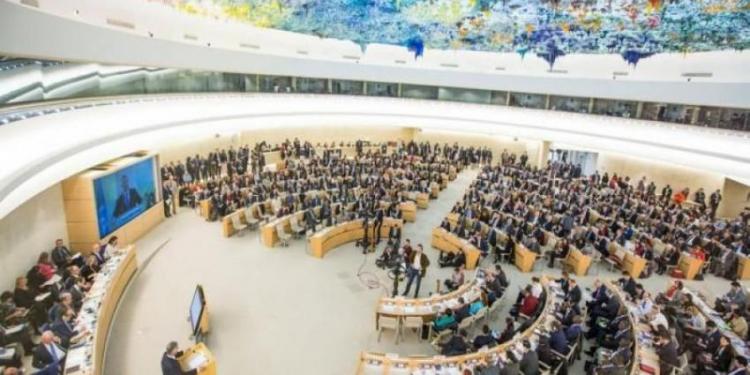UN observer: coercive unilateral procedures in Syria didn’t stop the war
Cairo – North-Press Agency
Muhammad Abu Zayd
North-Press obtained a text of a report which was submitted yesterday by an Egyptian human rights organization, acting as an observer in the United Nations, in front of the 42nd session of the UN Human Rights Council, where it considered the unilateral coercive procedures in Syria as “they didn’t stop the war”, raging in the country since 2011, which has killed hundreds of thousands of people.
Maat Foundation for Peace, Development and Human Rights presented on Thursday its report during an interjection in the session about the unilateral coercive procedures imposed by a number of countries and regional organizations on Syria, on the sidelines of the 42nd session of the UN Human Rights Council which it started its works during current September.
The interjection confirmed that, “these procedures didn’t prevent the parties of the conflict from the use of violence and excessive force against Syrian civilians, where the country is witnessing the systematic use of violence by all parties of the conflict”.
The head of the human rights institution which has enjoyed the observer status in the United Nations, Ayman Akil said that the past years have proved that, the procedures and measures demanded or imposed by these countries to protect the civilians, have had a disastrous impact on the Syrian economy and citizens, where those procedures damaged the Syrians’ capabilities in purchasing food from the international market and to pay for import costs due to financial constraints. It also obstructed the purchase of medicines and medical equipment.
Akil added that the embargo on the oil sector affected negatively on the living conditions, and led to a significant increase in the costs of heating fuel, fuel for power generating and transport means, and a gradual decline in governmental support for the energy sector. Thus, it led to the exacerbation of the widespread human suffering and put the Syrians in the face of unjustified difficulties in enjoying their fundamental rights because of the accumulation of different and overlapping regimes of unilateral coercive procedures.
The interjection stressed that, there is no justification for the continuation of unilateral coercive procedures imposed on food and agricultural products, medicines and dual-use items such as water, sanitation and public services related to electricity and transport, which in turn hamper the reconstruction of schools, hospitals and other public buildings, the restoration of basic services for the population, and the ineffectiveness of humanitarian exceptions. It called for the lifting of all procedures that have a negative impact on the enjoyment of the human rights of the Syrian people.

